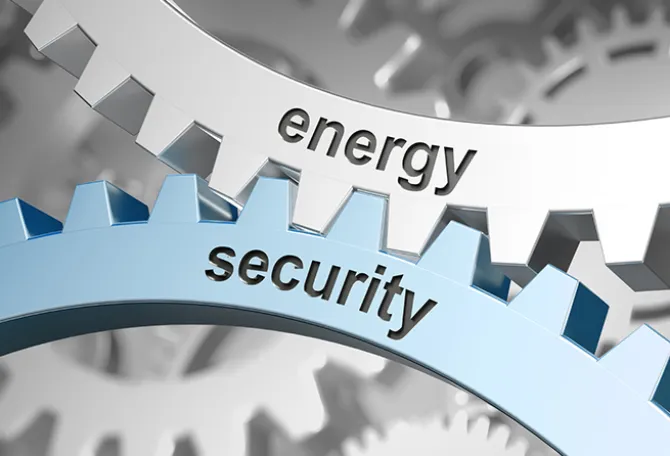EEMI, in partnership with the Society of American Military Engineers (SAME), will be conducting a symposium on Transatlantic Energy Security in the National Press Club on October 29, 2025.

The principal forcing action behind the upcoming Symposium is the fact that United States and the European Union are operating in a new threat environment that provides a new context and framework for the responsibilities of independent nations including actions in response to emergencies. In the United States, the President has declared a National Energy Emergency. We know that adversaries are interested in the vulnerabilities of our critical infrastructures, particularly with regard to energy production, distribution, and storage. A series of recent U.S. Presidential Executive Orders is emphasizing the importance of a number of key energy issues, including nuclear energy and technologies, material availability, permitting, and other issues. Threats include natural and manmade events such as severe weather, storm surges exacerbated by rising and warmer seas, natural disasters such as earthquakes and wildfires, electromagnetic pulses (EMPs), aging infrastructure, cyber threats, kinetic attacks on electricity substations, and growing infrastructure network interdependencies. Data centers that will be supporting Artificial Intelligence will be using more and more energy, which must be addressed in the context of aging infrastructure and available resources.
Small Modular Reactors and other emerging technologies need to be incorporated into existing infrastructure for mission readiness and energy production capability. With all of this in mind, the GW EEMI and SAME are preparing a Transatlantic Symposium to help the international community explore the design and practicalities of tomorrow’s energy systems while addressing today’s mission critical energy security and readiness realities of complexity and scale. As components of our energy infrastructures become increasingly interdependent, a whole new set of related vulnerabilities are in place.
To address this, EEMI and SAME are preparing the Transatlantic community by examining the following issues, among others:
- Energy Security and grid energy production – strategic leveraging of nuclear reactors, fossil fuels, renewable energy
- Energy Security and relationship to the permitting and regulatory processes
- Energy Security and relationship to critical minerals and critical infrastructure logistics
- Cybersecurity and relationship to Energy Security
- Energy Security and spent nuclear fuel management, commercial fuel recycling and the use of nuclear materials
Within this framework, we will examine the strategic modernization of our energy infrastructures and the streamlining of our permitting and regulatory processes to enhance readiness, reliability, flexibility, and efficiency directly contribute to energy security. The challenge is to develop the appropriate measures and actions to help measure and value such contributions. The Symposium on Transatlantic Energy Security is intended to do this effectively and efficiently.
The program team planning the symposium consists of the following EEMI leaders:
- Dr. Teresa Pohlman, former Executive Director of Sustainability and Environmental programs at the U.S. Department of Homeland Security
- Dr. Andras Simonyi, former Hungarian Ambassador to the United States and senior official of the Atlantic Council
- Dr. Ed Saltzberg, Director of Professional Education, GW Environmental and Energy Management Institute
- Mark Pollins, former Director of Environmental Enforcement, US Environmental Protection Agency
- Honorable Alex Beehler, former Assistant Secretary of the Army for Installations, Energy and Environment
- Whitney Stowell, Past President, Society of American Military Engineers, DC Post
- Bree Beal, incoming President, Society of American Military Engineers, DC Post
- Dr. Jonathan Deason, Executive Director, GW Environmental and Energy Management Institute
More detailed information can be seen at here


